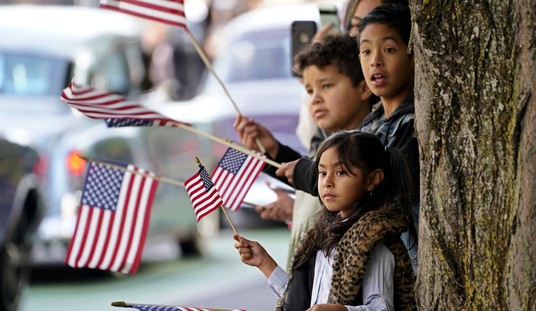The storm clouds hanging over Venezuela don’t look like they’ll be giving way to clear skies any time soon. In the latest twist to the story, the opposition leadership just seated their own panel of Supreme Court judges. It’s a choice which looks to be a largely symbolic protest against the current judges who are the hand-picked servants of President Nicolas Maduro. It’s a bold move, particularly given the ill temper and unstable nature of their dictator, but perhaps they are sensing a shift in the tides of their fortunes. (Reuters)
Venezuela’s opposition-led congress said on Friday it will appoint 13 alternative judges to the country’s Supreme Court, whose current pro-government members have been a bedrock of support for leftist President Nicolas Maduro.
While widely seen as symbolic, the move raises the specter of the development of a parallel state. The top court has warned that the naming of the alternate judges is illegal, and they could be jailed.
“The Supreme Court’s constitutional chamber warns those who undertake the unconstitutional pretense of naming magistrates will face the consequences of usurpation of functions,” the Supreme Court said in a statement late on Thursday.
They went ahead and did it, so now the big question is what the response will be. First of all, judges need a courtroom to sit in if they’re going to hear actual cases (not that there’s any sign of that happening yet) so where would they go? Attempting to march them down to the current Supreme Court building and seat them, presumably after physically throwing the current judges out the door, would be seen pretty much as an open act of war against Maduro. But if they establish them anywhere else it begins to look frighteningly like the situation described in the Reuters article, specifically the rise of a parallel state. Once you have two governments operating inside of a country at the same time, you are officially in a state of civil war whether you want to call it that or not. Maduro would have no choice but to send in the military and throw all the survivors in prison.
But as I alluded to above, perhaps it won’t come to that. The opposition leaders in the legislature know precisely who they’re dealing with and exactly how vicious his retribution can be. I’m sure they have no more desire to go rot in one of Maduro’s prisons than anyone else. So is this a signal that they’ve sensed some weakness in the President? He’s been losing supporters in his own government lately, not to mention the constant, massive protests against him by his own citizens. If he’s beginning to get nervous about his own grip on power and the opposition knows it, this could be a trial balloon to see if Maduro will hunker down in the palace and let this slide. If he does, we may be close the beginning of the end.
The problem is, what sort of “end game” will we get? I’ve wrestled with that question here many times in the past. The ideal solution would be for Maduro to simply relent, schedule new elections (including for his own office) at once and then leave peacefully after he loses in a landslide. But does that seem likely? He’s not been one bit shy about sending out his militias to beat down and even kill the protesters. Power is a blinding and addictive drug, particularly if you’re the sort who simply can’t let go of it. The other, less peaceful option would be a bloody awful spectacle for the world to behold.








Join the conversation as a VIP Member